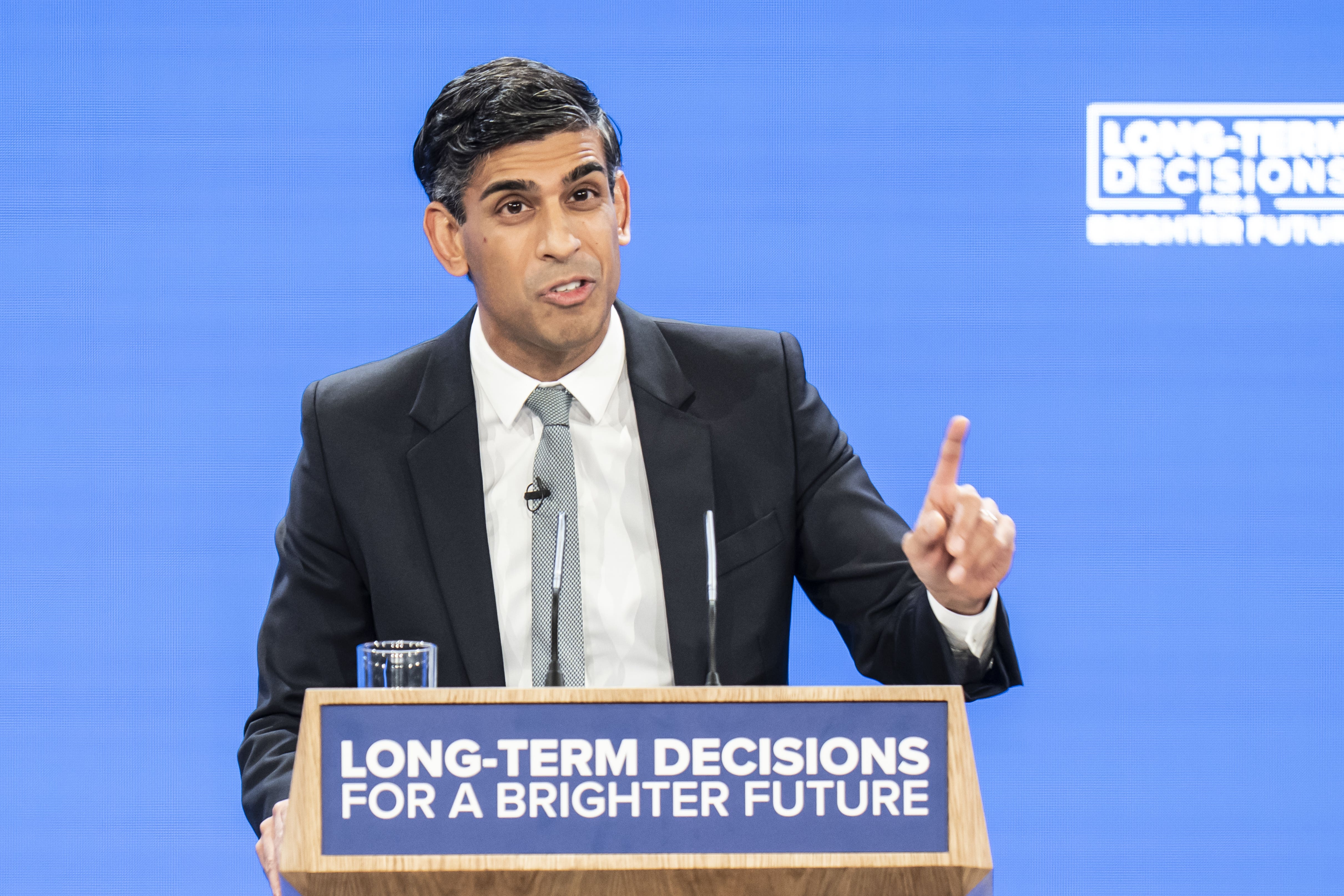Business leader combed Sunak’s speech for an economic shot in the arm. They searched in vain
Firms were looking to Rishi Sunak to show signs that the government was going to lift Britain out of its economic torpor. But, as Chris Blackhurst reports, all they got were platitudes, slogans and empty rhetoric


Soon after Rishi Sunak’s conference speech, I was at a City heavy-hitter’s house in London. He was having what by his standards was a small gathering of about 50 people. Present were several captains of industry.
As the waiters topped up glasses of fine wine and handed round the canapes, conversations turned to the prime minister and his address. Chatham House rules forbid me to name names. Suffice to say, none of those present were impressed.
These were senior business folks, and what they were looking for was evidence of joined-up thinking on the economy, signs that Sunak and his colleagues were determined to lift Britain out of its current state of torpor. They said they had searched in vain.
Listening to them, it felt like being in a parallel universe. There was the world that was full of cheering and waving union jacks in Manchester, and there was the one in this drawing room. Their own firms weren’t in bad shape, but that was as much due to their rigorous management as to any surge in domestic activity. What worried them was the lack of performance elsewhere in the UK. All around, one said, he was witnessing enterprises going nowhere; there was an absence of dynamism. Another said that his ears had pricked up when Sunak spoke of “aspiration”, but then it became obvious that what was being referred to was personal ambition, not the prime minister’s desire to raise the collective economic game.
Someone else said he’d been to Manchester and what he had found was a sea of platitudes, slogans and empty rhetoric. No detail was being offered by speakers, on anything.
While the Tories were busy proclaiming that they had the solution to this or that problem, the bond markets were telling a different story. The cost of government borrowing is now higher than after Liz Truss’s mini-Budget last year. The Bank of England has stopped pump-priming, the injections of money have ceased, and the markets are forming their own, unvarnished view. It’s not promising.
Britain is still in the grip of austerity. Sure, Sunak spoke of road and rail improvement schemes, but that was at the expense of the big one. He was only prepared to spend because the second phase of HS2 had been scrapped.
Those developments he listed were long overdue, and should have been under way regardless. As it is, they’re going to take years to reach fruition and, given this country’s record on such projects and the ever-hovering spectre of nimbyism, it will be interesting to see how many make it, and which ones are not subjected to rows, redrawing, and eventual canning.
Too much attention was being heaped on social issues, and not enough devoted to the thing that creates jobs and generates income for taxes, namely the economy. There was no serious talk of how to achieve growth, or how to boost productivity (long the UK’s bugbear). Where they were mentioned, no actual substance was shared. At her alternative rally, Truss called for taxes to be slashed and for 500,000 homes a year to be built. How the tax cut would impact public spending was not specified, nor was she challenged on that housing figure – which is far beyond even the current target, itself nowhere near being met.
Likewise, the government basked in the announcement that three giant new factories are to be constructed, without mentioning that these came at the cost of subsidies of £1bn to their foreign owners. This has provoked much irritation in the UK business community – the guests at the west London soiree were annoyed that companies that were making billions in profits were being favoured in this manner, but yes, they’d like to be recipients of such largesse themselves.
One was adamant, however, that “it will end in tears”, saying that the record of using state handouts to persuade overseas businesses to set up in the UK was poor.
What baffles business is that easy moves to boost the economy are crying out to be made. We’ve left the EU, but regulation remains as suffocating as ever – despite assurances that the advantage of exiting would be to free the country of red tape. The high street is still having to deal with an antiquated business rates system – despite being told repeatedly that it would be reviewed and reformed.
Likewise, the travel, hospitality and retail sectors have been complaining loudly about the “tourist tax” and how the VAT charge is putting off visitors and deflating trade. Wealthy tourists are going to centres like Paris and Milan for their shopping, and not spending on London hotels, restaurants and theatres. The tax takes in £2bn a year, but one recent study from the Centre for Economics and Business Research found that the UK had lost 2 million visitors and suffered a hit of £10.7bn from the imposition of the charge.
It didn’t make sense for the tax not to be lifted. All that was preventing it from being scrapped was pride... and as one guest pointed out, businesses that allow ego to get in the way of decisions very often fail.
Join our commenting forum
Join thought-provoking conversations, follow other Independent readers and see their replies
Comments


Bookmark popover
Removed from bookmarks